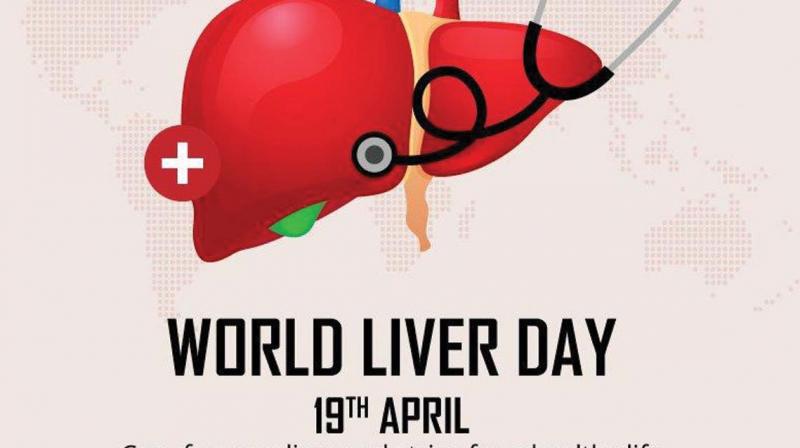As the world marks World Liver Day, nutrition experts have sounded an alarm over the increasing prevalence of liver-related ailments, which they attribute to poor dietary choices and unhealthy lifestyle habits. These professionals are urging Nigerians to better understand the crucial role the liver plays in maintaining overall health and to make proactive adjustments to their diets to support liver function.
Observed every April 19, World Liver Day aims to raise awareness about liver health and promote the prevention and management of liver diseases. This year’s theme, “Food is Medicine,” underscores the important connection between nutrition and liver wellbeing. Experts warn that the rise in conditions such as non-alcoholic fatty liver disease (NAFLD) and liver cirrhosis is closely linked to diets high in processed foods, refined sugars, and unhealthy fats, all commonly associated with Western eating habits.
The liver, often referred to as the body’s metabolic powerhouse, performs over 500 vital functions, including detoxifying harmful substances, metabolizing nutrients, and producing bile for digestion. Despite its resilience, the liver is not immune to damage from poor nutrition, excessive alcohol consumption, and sedentary lifestyles. Unfortunately, liver diseases often develop silently, making them difficult to detect until they reach more advanced stages, especially in developing nations like Nigeria, where awareness and specialized liver care remain limited.
In separate interviews with our correspondent, registered nutritionist Mrs. Odunayo Babatunde highlighted the critical role that diet plays in preventing and managing liver disease. She explained that certain foods, particularly those rich in antioxidants, can support liver health by reducing oxidative stress, promoting the regeneration of liver cells, and combating inflammation. Green leafy vegetables, berries, fatty fish, and walnuts (asala) were singled out for their ability to enhance the liver’s detoxification processes. Additionally, she recommended coffee, green tea, and turmeric as effective substances for supporting liver function, noting that their regular, moderate consumption could reduce the risks of liver fibrosis and cirrhosis.
On the flip side, Babatunde warned that foods high in saturated and trans fats contribute to fat accumulation in the liver, leading to insulin resistance, inflammation, and ultimately severe liver conditions. Excessive sodium intake was also identified as a danger, particularly for individuals already diagnosed with liver disease, as it can lead to fluid retention and further strain the liver.
Alcohol consumption, she stressed, remains one of the most significant threats to liver health, as the liver is responsible for processing alcohol and the toxic substances produced during its breakdown. Chronic alcohol use leads to inflammation, fat buildup, and potential cirrhosis. Babatunde also cautioned against a diet rich in processed foods and refined sugars, which exhaust the liver’s detoxification functions and trigger metabolic disruptions.
For those already diagnosed with liver conditions, Babatunde recommended nutritional therapy under medical supervision. She emphasized the importance of antioxidants, particularly vitamins C and E, in neutralizing the oxidative stress that is common in individuals with liver disease. At advanced stages of liver disease, she suggested that patients should carefully manage their protein intake, particularly by opting for plant-based sources like legumes and nuts, which are easier for the liver to process.
Meanwhile, Chief Dietitian Mrs. Olufunmilola Ogunmiluyi, who also spoke on the issue, emphasized the central role of the liver in overall health, including detoxifying the blood, producing bile, and storing nutrients. Ogunmiluyi echoed the call for a balanced diet, which she said is essential for both the prevention and management of liver diseases. She advocated for the consumption of leafy greens, cruciferous vegetables like broccoli, garlic, and fatty fish, as well as berries and avocados, which contain compounds that support liver function.
Ogunmiluyi also warned against the consumption of high-fat foods and processed foods, both of which contribute to the rise in fatty liver disease. She explained that such diets result in fat accumulation in the liver, which places undue stress on the organ and can lead to inflammation or scarring. Additionally, excessive sugar intake and overeating processed meals were flagged as major contributors to non-alcoholic fatty liver disease (NAFLD), while alcohol consumption was identified as a significant accelerant in the progression of liver diseases.
As a preventive measure, Ogunmiluyi called for increased awareness about vaccines against hepatitis A and B and urged Nigerians to adopt good hygiene practices, limit alcohol consumption, and strictly adhere to prescribed medications. She also advised people to maintain a healthy weight, as obesity is a major risk factor for fatty liver disease. This, she said, could be achieved through dietary changes, regular physical activity, and a reduction in the consumption of refined sugars and unhealthy fats.
Both nutritionists agreed that adopting a Mediterranean diet, which includes a high intake of vegetables, fruits, whole grains, lean proteins, and healthy fats, can significantly reduce the risk of chronic liver conditions. They also recommended increasing water intake and practicing portion control to maintain a healthy weight, as obesity is a leading cause of non-alcoholic fatty liver disease.
As World Liver Day 2025 approaches, these experts are urging Nigerians to make informed dietary choices that will support long-term liver health. By adopting better eating habits and staying mindful of the liver’s role in overall wellbeing, they believe individuals can significantly reduce their risk of liver diseases and enjoy healthier, more fulfilling lives.

